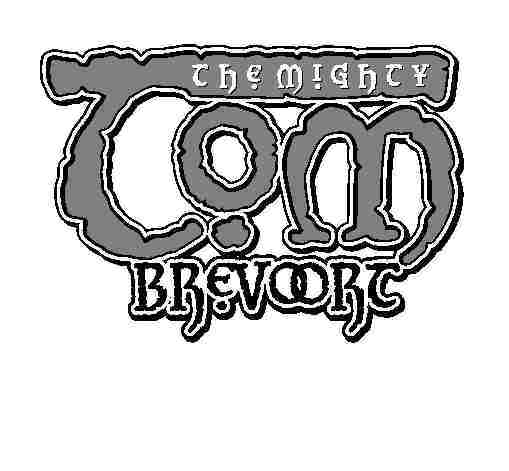This was a post concerning how the point of view of the Editor is different from that of the Writer. Also, I showed off the logo that now adorns the top of this page.

Tough Choices
April 28, 2007 | 1:00 AM | By Tom_Brevoort | In General
You know what everybody needs? Their own logo.
*****
A quick dissertation on one of my points of editing philosophy. I believe I’ve
mentioned the point before, but haven’t necessarily elaborated on why:
As Editor, Your First Loyalty Is To The Book.
While you want to have good, productive relationships with all of the people
who work on your various titles, at the end of the day, the editor’s first
loyalty in any given situation should be towards the title. What is best for it
in the long run and the short run.
This can be a tough thing to do, especially because you do develop friendships
with the people you work with, and nobody wants to tell their friends no, they
can’t do a certain story, or even worse, that they’re now out of a job because
you feel the need to bring somebody else in. But asa comic book editor, you’re
going to be called upon to make these sorts of decisions and have these sorts
of conversations every day.
There’s an underlying belief in everything we do, based on no concrete evidence
in particular: Good Comics Will Sell Well. If you make it good, then people
will respond. Doesn’t always work out quite this way, but there you go–it’s
the best mission statement you can have. And in that mission, you are allied
with the creative team. But there’s a difference in perspective. The writer’s
job, for instance, is to worry about his story. Whatever’s best for his story
is the course that the writer should pursue. Or, to put it simply, the writer
most often thinks in the short term. But as the editor, you have to keep the
long-term in mind as well, and not yield to the temptation to do lasting damage
to the title for the sake of short-term sales. (Which isn’t to say that all
short-term sales boosters or radical status quo changes are inherently
bad–only that you’ve got to be able to tell the ones that are apart from the
ones that aren’t.) The editor is supposed to think long-term, because the
editor is the person with the best chance fo being there long-term.
But the job, in its most basic form, is to Make Comics That Sell, that people
like. The nebulous part of the equation is that notion that Good Comics Sell.
Therefore, if you make good comics, comics that you yourself really like, then
you’ve got a good chance of finding an audience and fulfilling your ultimate
mandate, making the books sell.
A correlary to this is the absolute fact that, as the editor, You Cannot Save
Everyone. Comics are a cyclic medium, tastes change, and creators who made a
steady living in the field one year can find themselves on the outs with the
industry the following year. Your talent and your creativity is your currency
when you’re a creator, but the field is a machine that chews up ideas and
stories and is always hungry for more. And newer.
It’s brutal, but it happens–and it happens to almost everybody eventually. For
example, say what you will about Chris Claremont, but he’s the only writer of
his generation who’s still actively writing in the field. Everybody else from
Chris’s “graduating class” maybe does a project now and again around
the field, maybe something for a smaller publisher now and again. But their
days of making the majority of their living from writing comic books has come
to an end. The same can be said of the “graduating class” of John
Byrne–everybody else has fallen by the wayside, more or less. (The one saving
grace seems to be creators who leave the monthly grind–and sometimes the
industry–at their peak. There’ll always be interest in, say, a new Alan Moore
project, but that’s partly due to the fact that he largely walked away from
doing monthly books in the late ’80s. Same for guys like Neal Adams, or Jim
Steranko, or James Robinson.)
More later.
Tom B
0 (0)
Report

How about Peter David?
LikeLike